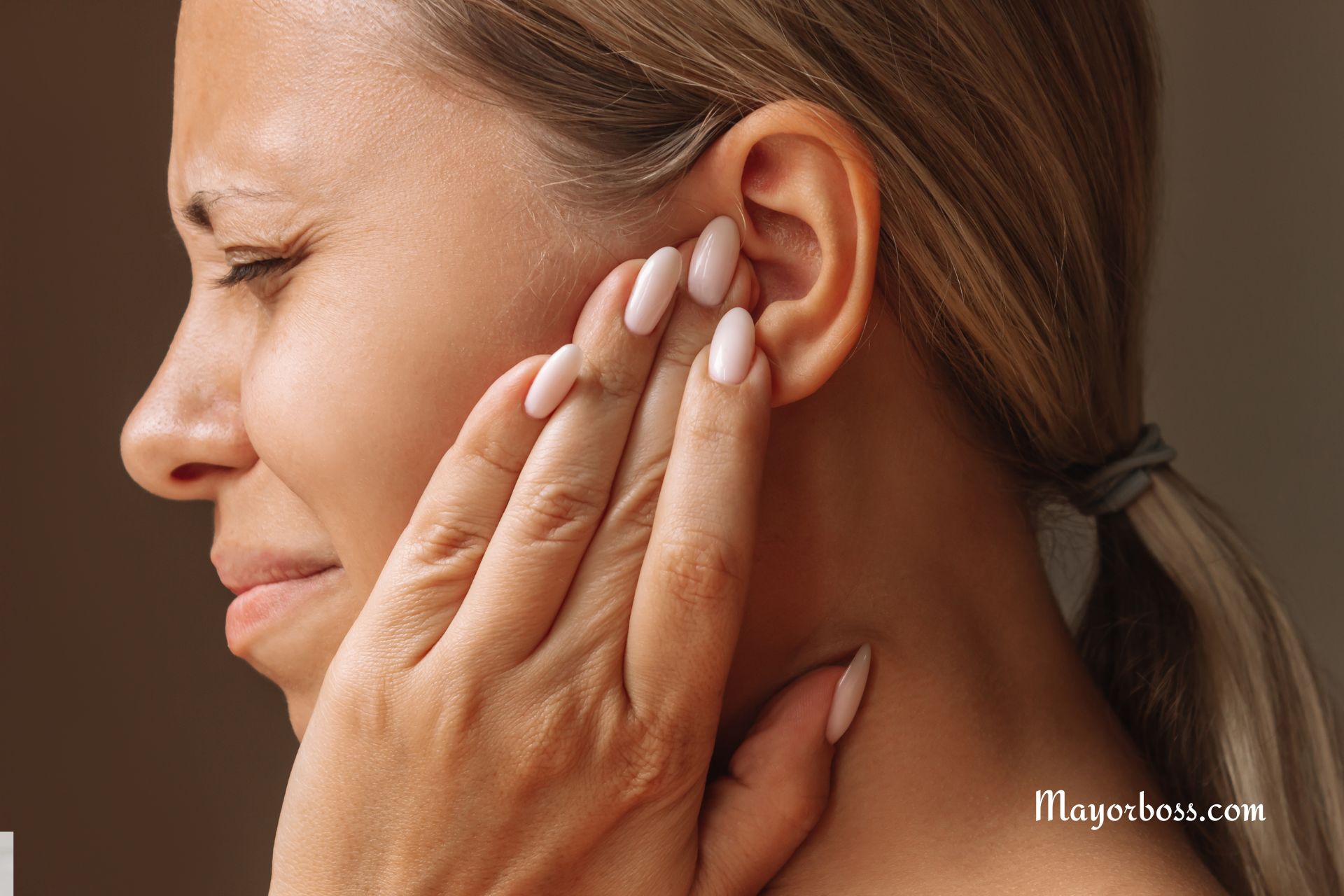Ear pain might be a sign you’re dealing with an ear canal blockage
Ear pain, also called otalgia, can happen for many reasons, like infections, injuries, or even dental problems. But one common cause people don’t think about is a blockage in the ear canal. Dr. Iroko Anita, a certified medical doctor, says, “An ear canal blockage happens when something blocks the pathway inside the ear, causing discomfort, hearing problems, or even infections.” These blockages can be mild or serious, depending on the cause.

What causes blockages in the ear canal?
Several things can block the ear canal, including:
- Wax buildup: Too much earwax, also called cerumen, can harden and block sound from reaching the eardrum.
- Foreign objects: Things like cotton swabs, earbuds, or small toys can accidentally get stuck in the ear.
- Swimmer’s ear: Water trapped in the ear after swimming can lead to bacteria or fungi growing, causing a blockage.
- Skin conditions: Eczema or psoriasis in the ear can make the ear canal swell and narrow.
- Growths: Tumors or cysts, though rare, can block the ear canal.
Symptoms of ear canal blockages
When the ear canal is blocked, you might notice several symptoms. Dr. Iroko Anita explains, “You may feel like your ear is full, have trouble hearing, feel dizzy, or see discharge coming from your ear.” Pain is another common symptom, especially if the blockage causes an infection. If you have any of these signs, it’s important to act quickly. See an audiologist (doctor).
Ignoring an ear canal blockage can lead to bigger problems
Even though a blockage might not seem like a big deal, it can cause serious issues if not treated. Dr. Iroko Anita warns, “If a blockage is left untreated, it can lead to infections, permanent hearing loss, or damage to the eardrum.” People with conditions like diabetes or weak immune systems are at a higher risk of complications.
Diagnosing a blockage needs a doctor’s help
To figure out what is causing the blockage, a doctor will need to examine your ear. They may use a tool called an otoscope to look inside. Dr. Iroko Anita says, “Don’t try to figure it out or fix it yourself. You could make the problem worse or hurt your ear.”
How ear canal blockages are treated depends on the cause
The treatment for a blockage will depend on what is causing it:
- Wax removal: A doctor can clean out your ear using water, suction, or special tools.
- Medications: If there’s an infection, you might need antibiotics or antifungal ear drops.
- Surgery: For growths like tumors or cysts, surgery might be needed.
- Removing objects: A doctor can safely take out anything stuck in your ear.
Dr. Iroko Anita advises, “Never use cotton swabs or other objects to clean your ears. You could push the blockage deeper or hurt your ear.”
Simple steps can help you prevent ear canal blockages
You can lower the chances of getting a blockage by:
- Keeping objects out of your ears.
- Drying your ears well after swimming or bathing.
- Using earplugs when swimming or around loud sounds.
- Cleaning the outside of your ears gently with a washcloth.
Dr. Iroko Anita says, “It’s better to stop blockages before they happen. Taking care of your ears and being gentle with them can help a lot.”
See a doctor if ear pain or blockages don’t go away
If you have ongoing ear pain, trouble hearing, or notice discharge, see your doctor or an audiologist. “If your ear feels blocked or painful for a long time, talk to your doctor so it doesn’t get worse,” says Dr. Iroko Anita.
The Bottom Line
Ear pain could mean you have a blocked ear canal, and it’s not something to ignore. Getting medical help and keeping your ears healthy can protect your hearing and prevent problems. Dr. Iroko Anita reminds us, “Your ears are delicate, and caring for them is very important.”
